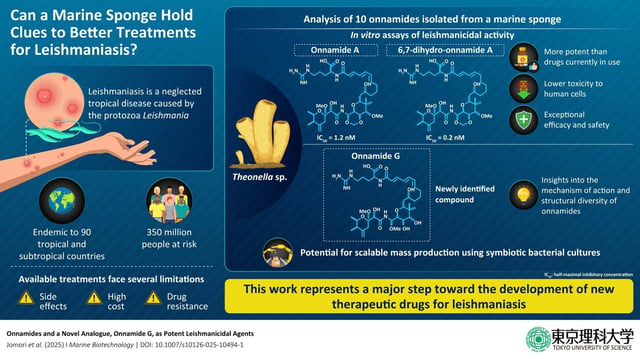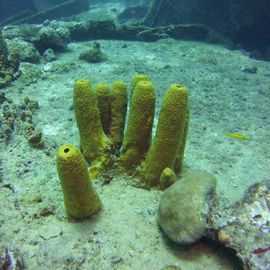Overview
- A Japan-led team isolated 10 onnamide-related molecules from Theonella sponges collected in Manza, Okinawa, including a newly characterized analogue named onnamide G.
- Onnamide A and 6,7-dihydro-onnamide A showed strong activity against Leishmania major in vitro with low toxicity to human cells, indicating high selectivity.
- Experimental evidence suggests onnamide A acts through a pathway distinct from amphotericin B, raising prospects for tackling drug resistance.
- The work, published September 5 in Marine Biotechnology, is now being advanced through Japan’s AMED Drug Discovery Booster program to verify lead potential.
- Researchers emphasize that animal efficacy, pharmacokinetics, safety, and scalable production—potentially via symbiotic-bacteria culturing—are still required before clinical development.

